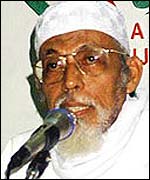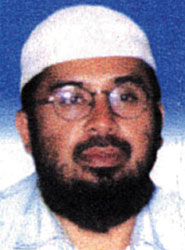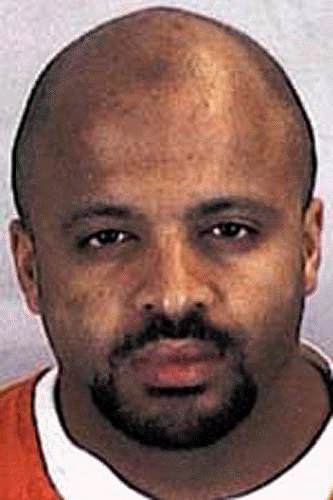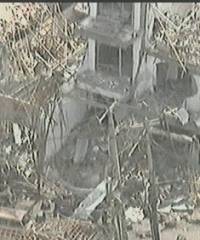|
Jemaah Islamiah If you liked al Qaeda, you'll love Jemaah Islamiah.
If you liked al Qaeda, you'll love Jemaah Islamiah. JI has all the viciousness, capabilities and big dreams of Osama bin Laden's terror cabal, but without the entire military-intelligence complex of the Western world on its tail. Rooted in Southeast Asia, JI sprang from a loose collaboration of Islamic purists who were trying to insulate themselves from the "corruption" of Western society. Some time around 1969, an idealogue named Abu Bakar Bashir began an operation to help spread this fairly virulent brand of extremism, known as Darul Islam. Darul Islam had been largely exterminated in the '50s, after instigating armed revolts around Southeast Asia, part of an effort to create Islamic funadmentalist regimes. Bashir and his friends created a pirate radio outfit to prosletyse Darul Islam to the poor and generally oppressed peoples of the region. Listeners thought an armed revolution sounded pretty good, as poor and generally oppressed people often do. Bashir found enough support to create a boarding school in Java, whose motto, "Death in the way of Allah is our highest aspiration," should tell you everything you need to know about its curriculum. Bashir and his collaborators tried to get the revolution off the ground, but a combination of short-attention spans and agressive policing kept the venture from getting off the ground. Bashir spent several years in jail for these efforts, and on his escape in 1982, he was understandably even more pissed.
JI at first went the way of many wannabe revolutionaries, pamphleteering with a vengeance, bitching a lot and actually doing relatively little. Bashir loved to talk about jihad, but he didn't act out to a great extent, left to his own devices. Had he been left to his own devices, that would have worked out pretty well. Unfortunately, a tall dark stranger was set to enter his life. His name was Riduan Ismuddin, but everyone called him Hambali. He had spent the late 1980s learning the ways of the mujahideen warrior in Osama bin Laden's terrorist training camps in Afghanistan and Pakistan, where al Qaeda was born. Student's on the dean's list at these camps included such prominent names as Ramzi Yousef and Khalid Shaikh Mohammed. Hambali was another star pupil. Hambali quickly wormed his way into the tough-talking JI, and with his goading, it didn't take long before the organization was walking the walk. At first, JI's terrorist activities were support operations for al Qaeda-sponsored operations in the Philippines and elsewhere. JI quickly enmeshed itself into an intricate network of small, nearly anonymous, Islamic extremist cells in Southeast Asia, funneling cash and logistical support where it was needed (or, in many cases, where bin Laden dictated it was needed).
According to the CIA world factbook, Hambali's super-state would have a population of nearly 420 million people (compared to the U.S. population of 280 million). The conscript base of men fit for military service would number well over 75 million, significantly higher than the U.S. The super-state would have a chokehold on shipping lanes in the South China Sea providing access from Asia proper to the Indian Ocean, enabling it to exert significant control over sea trade and airspace flowing to India, Africa and Australia. (See the entry on Hambali for more details.) With this grand scheme firmly in mind, JI took its place in the big stage of super-terrorism in 2000, with an ambitious series of church bombings across Indonesia. Bombs are JI's weapon of choice, and its targets soon expanded to other types of buildings (such as shopping malls and government centers) and to other nations (including Singapore and Malaysia).
Despite all these offenses, George W Bush and his cronies never set their sights on JI, for a number of reasons (beyond the nagging suspicion that they just aren't that bright). The greatest difficulties, both in investigating September 11 and undertaking enforcement in Southeast Asia, stem from the lousy relationship the United States has historically maintained with Malaysia and Indonesia. Furthermore, JI is popular in both countries, which are predominantly Islamic, and the governments there have come under heavy fire for cooperating even as pathetically little as they have in the "War on Terror." In fact, JI was the recipient of very little in the way of "law enforcement" until October 2002, when a bombing in the tourist district of Bali made it impossible for anyone to keep pretending there wasn't a whopping big problem here. The attack was an attempt to target Americans vacationing in Bali. In fact, it ended up killing more than 180 people, mostly Australians. We all look alike to them. JI hit two crowded nightclubs in synchronized suicide attacks that left scores dead and hundreds with burns, cuts, contusions and mangled or missing limbs.
Bashir continued to openly preach jihad from the school he headed in Java for a week after the Bali bombings before Indonesia caved into to massive international (read: U.S.) pressure and arrested him. Even then, they didn't try to pin the Bali attack on him, and instead charged him with ordering the 2000 church bombings that got JI started on the road to terror stardom. In the meantime, JI has continued a massive push across the region, stockpiling unknown tons of ammonium nitrate, the fertilizer/explosive that Timothy McVeigh and Terry Nichols used to blow up the Murrah Federal Building in Oklahoma City (and a favorite al Qaeda weapons as well). As many as 21 tons could have been purchased toward its terror plans; a few tons have been recovered by police in various coutnries. In the meantime, Bashir denies everything, and the Indonesian government sits with the unenviable prospect of virtually any resolution to Bashir's trial. If convicted of terrorism and treason, he could be sentenced to life in prison, which would quite possibly lead to a popular uprising and blood in the streets. If he's acquitted, Uncle George W. will not be in the least amused, and Bashir gets to resume his violence-fomenting ways. And even if, by some miracle, Indonesia managed to find an out in which it scores some sort of moral victory, there's always Hambali. Captured by the U.S. in August 2003, Hambali is a much sought-after commodity in Southeast Asia, where everyone has a trial and some form of execution warming up for him. Almost any outcome would leave the ideology of JI in a stronger position (if not necessarily its hierarchy). And there's nothing like a fresh "injustice" to get suicide bombers all fired up. |
 Bashir fled to Malaysia and began recruiting cannon fodder, uh, I mean, "followers," on the road to jihad. Southeast Asia is not a happy place. There was plenty of disconent to go around. Bashir drew his fodder from the streets of Malaysia,
Bashir fled to Malaysia and began recruiting cannon fodder, uh, I mean, "followers," on the road to jihad. Southeast Asia is not a happy place. There was plenty of disconent to go around. Bashir drew his fodder from the streets of Malaysia,  That same year, Hambali and JI played a critical role in assisting the September 11 terrorist attacks that destroyed the
That same year, Hambali and JI played a critical role in assisting the September 11 terrorist attacks that destroyed the  Even the Indonesian government, long practiced in the art of denial, was forced to come to terms with the scope of the problem. That doesn't mean it was easy, of course. Hambali was so deep underground that it was (apparently) impossible to find him, while Bashir was... well, he was popular.
Even the Indonesian government, long practiced in the art of denial, was forced to come to terms with the scope of the problem. That doesn't mean it was easy, of course. Hambali was so deep underground that it was (apparently) impossible to find him, while Bashir was... well, he was popular.